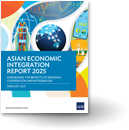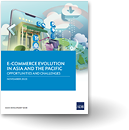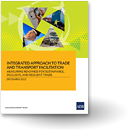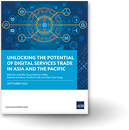The long road to the World Trade Organization for small Pacific Island States
Becoming a member of the WTO is not always easy. Accession is a complicated and cumbersome process, taking an average of 10 years to complete. Yet, despite this, some 27 non-member countries are still in line to join.
Since the creation of the WTO in 1995, 29 countries have successfully completed this process to become Members. This includes Tonga, which became a member in 2007, as well as Samoa and Vanuatu, both of which became members in 2012. Given the fact that these small States are not significant trading economies, one can be excused for asking why then did they join? There are a number of benefits to joining the WTO; for example:
- The rights to most favoured nation treatment (MFN) and national treatment
- The benefits of a tight rules-based WTO dispute settlement process
- Increased credibility to internal domestic policy and legal reforms
- Increased transparency and clarity of market access to foreign markets
Even though these benefits exist, they do not tell the whole story in terms of the impact WTO membership can have upon the political economy of these small, vulnerable economies. The accession process itself is one fraught with many difficulties, some of which are discussed below.
Lack of legal limits when setting terms for entry
Although the formalities of the accession process are based both on a clear legal foundation (Article XII of the Marrakesh Agreement) and established rules and procedures, there is a distinct lack of legally prescribed terms and conditions with regard to what may be demanded of applicants as the so-called "price of admission". This last omission is rather surprising for an organization that prides itself on being the arbiter of a rules-based regime.
Lack of institutional capacity and technical expertise to negotiate
A major impediment to successfully joining the WTO quickly and smoothly is the weak institutional, financial and human resource capacities of applicants.
In the case of Tonga, Samoa and Vanuatu, the high demands placed on consultation and exchange of information among relevant government departments and stakeholders in both the private sector and civil society often overwhelmed the limited capacities of a small staff of dedicated technical experts already struggling to collect, collate and provide sufficient information to WTO Members.
The financial cost of accession is also very high for these economies. Observer status alone costs $20,000 per year. The cost of implementing all WTO agreements has been estimated at somewhere between $50-100 million, a figure that goes beyond the budgetary resources of these small island nations. This is not counting the cost of sending a team of officials to Geneva for recurring negotiating rounds with WTO Members.
Power asymmetries
WTO Members are largely unconstrained in attempting to extract extensive liberalization commitments from applicants that go well beyond commensurate commitments given by developing and least developing countries that were original WTO Members. An examination of the final accession packages of Tonga, Samoa and Vanuatu clearly illustrates the adoption of various so-called "WTO-plus" commitments:
- Vanuatu had to agree to sign the Government Procurement Agreement (GPA) despite the fact that this is a plurilateral agreement and thus not part of the WTO Single Undertaking;
- Both Tonga and Samoa undertook liberalization commitments in services that go considerably beyond the commitments made by many other developing country Members;
- These three newly acceded economies have bound there average final bound rates on goods at considerably lower levels than many existing Members;
- They have each had to make extensive commitments limiting their ability to affect policy interventions in support of their agricultural producers and rural populations.
Lack of recognition of their status as developing countries
Although one of the stated goals of the WTO is to integrate vulnerable economies into the multilateral trading system, some have argued that this has not been reflected in the level of consideration and assistance given to these small vulnerable States to address the inherent power asymmetries of the accession process.
This is a problem that the WTO has long recognized and has sought to address, both in 2002, with the adoption of provisions intended to expedite the WTO accession process for LDCs and again this year (2012), with a new set of guidelines intended to further facilitate the process of joining the Organization for the poorest countries.
Making the effort worth it
Of course, many would argue that, even though WTO accession is long and hard, that it nevertheless is just the easy part. This, they argue, is because once they have become WTO Members, small, island economies need to work exponentially harder in order to reap the full benefits of WTO membership, and to make the high price of admission to the multilateral system actually pay dividends in terms of better market access and export opportunities, and rising living standards for their populations.




